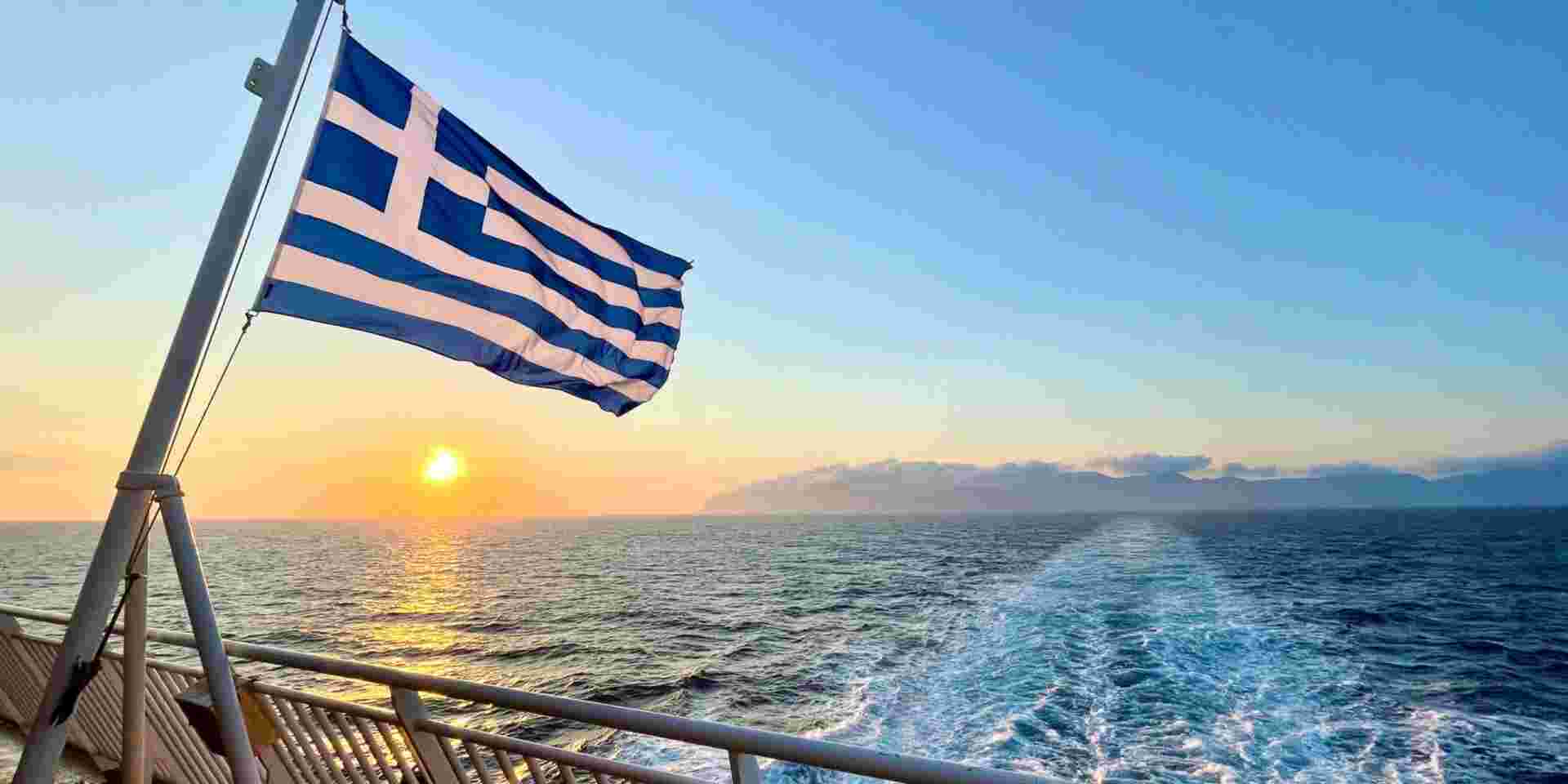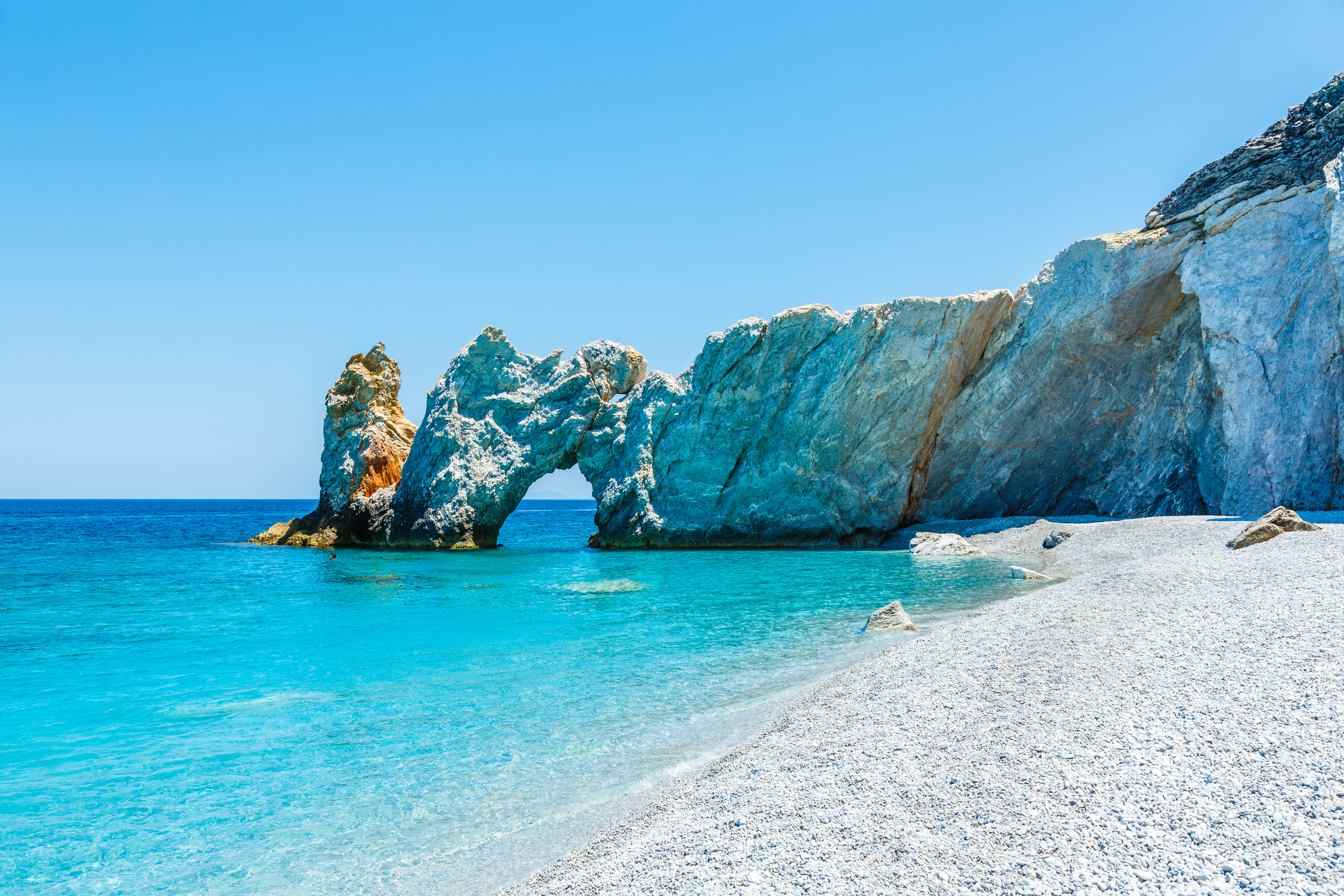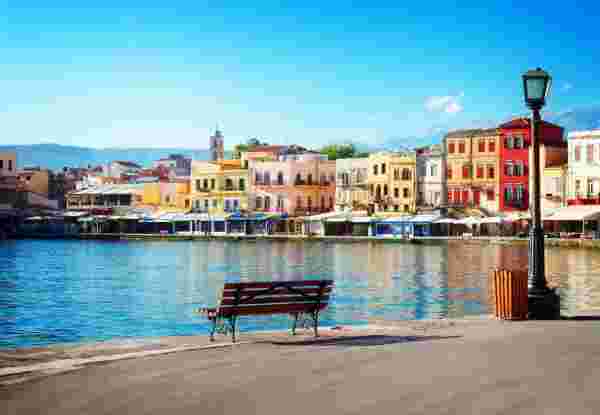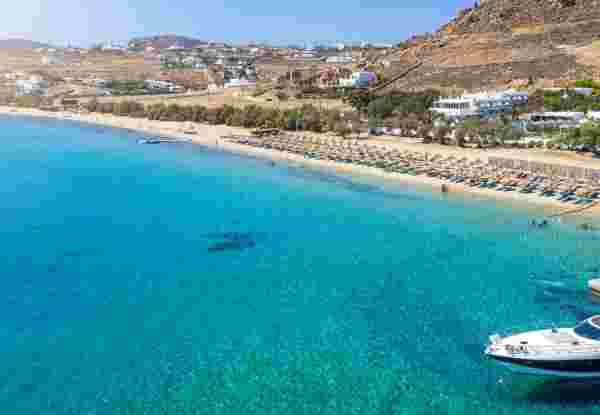Greek Ferries 101: All You Need to Know!

Planning a ferry trip within Greece? Find all the answers to your questions regarding Greek Ferries with our complete guide. Get useful facts, tips, and information about Greek ferries to make your journey smooth and hassle-free. Read now and plan your trip with ease! Safe travels!

Are Greek Islands connected with ferries?
Numerous ferry companies provide services between the Greek islands. The availability of crossings or ferry trips varies with the route, offering seasonal services or operating throughout the year.
Before planning your trip to Greece, it is best to be advised on which islands are best connected to maximize your experience.
Do Greek Islands have fast ferries?
Indeed, there are multiple high-speed ferries connecting the Greek islands. Whether you choose a catamaran or a speedboat, you can enjoy a quick and convenient journey between the islands. These fast ferries make island hopping both easy and efficient.
Do Greek ferries run year-round?
Yes, Greek ferries do operate in the winter, but the routes are not frequent and not really advisable
How reliable are Greek ferries for island travel?
Greek ferries are reliable, adhering to strict regulations to ensure passenger safety. However, like any mode of transportation, occasional delays or cancellations can occur due to weather conditions or unforeseen circumstances.
Fly or Ferry – What is right for you?
Not all Greek islands have airports, making ferries a more convenient and eco-friendly travel option. Taking the ferry allows for island hopping and enjoying the summer breeze from the deck.
Traveling from Athens to the islands and back, the best and fastest option would be to take a plane as taking the ferry would end up in lengthy travels, but traveling between the islands the best and sometimes the only option, is to take a ferry. Even when the islands have airports, if you choose to fly, all flights will be via Athens, so ask your Τravel Agent to give you the best option possible for your case.
Can passengers disembark and explore island ports?
No. When a ferry reaches a port, passengers have a few minutes to embark/disembark before the ferry leaves for its next destination. When reaching a port, crew announcements help passengers get ready to disembark promptly.
Do Athens ports offer ferry connections to the Greek Islands?
Numerous ferries operate between Athens ports (Piraeus, Rafina, Lavrion) and the Greek islands. Most ferries depart from Piraeus, connecting to Hydra, Spetses, the Argosaronic islands, Cyclades, Dodecanese, Northeastern Aegean islands, Crete, and Euboea. Depending on your destination, you can also take ferries from Rafina or Lavrion.
Luggage on Greek ferries: Allowed or Not?
Greek ferry companies are typically flexible with the number, size, and weight of luggage. Most conventional and large high-speed ferries offer luggage storage on the bottom level, making it convenient for passengers to stow their belongings.
According to all ferry company terms and conditions, passengers are entitled to carry (free of charge) hand luggage that is up to 50kg or 1 cubic meter.
From Fast Ferries website: “Passengers are entitled to carry on board hand luggage. The operator is responsible for the damage or loss of luggage on board the ship only if you deliver it for safekeeping and receive a receipt. Do not include valuables in your luggage. You can hand valuables for safekeeping to the Officers in charge”.
Blue Star website: “Place luggage in the designated areas of the vessels as per the crew’s instructions. Passengers are entitled to carry free of charge, luggage up to 50 kilos or 1m³. Do not include valuable items in your luggage. You can hand these items over to the Chief Purser for safekeeping. The company is responsible for the damage or loss of luggage on board, only if you have handed them over for safekeeping and received a relevant receipt. The company cannot be held responsible for any loss of money or valuables left in the cabins, the ship’s common areas, or the vehicles. Report any loss at the ship’s Reception Desk or at the Customer Service Department”.

Can I bring my rental car on a Greek ferry?
Typically yes, most ferries in Greece allow you to travel with a vehicle, as many conventional and high-speed ferries offer vehicle transfer services. However, this depends on the car rental company as well, as sometimes they are not covered if they take the car rental on the ferry.
Do Greek ferries have sleeping options?
For an overnight Greek ferry ride or a long trip, you can book a cabin for a comfortable sleep. Most Greek island ferries offer single, double, family, and pet cabins. If a cabin isn’t your style, you can nap in an airplane-type seat with a neck pillow, or relax outdoors and let the sound of the sea lull you to sleep.
Deck ticket on a ferry: What does it mean?
The deck space on ferries is an outdoor area with tables and seats for passengers. By booking a deck ticket, you can select from the available seating on the ferry deck and enjoy the breathtaking sea views during your trip.
Is Greece ferry travel pet-friendly?
Most Greek ferries accommodate pets with specially designed cabins, kennels, or designated deck areas. Some companies require a pet ticket, while others need a reservation via phone or email in advance. It’s important to check the ferry company’s pet policy before your trip and ensure you have all the necessary documents for a smooth journey.
How early to arrive at the port?
To ensure you don’t miss your ferry, aim to arrive at the port at least one hour before departure. If you’re traveling in a car, it’s advisable to get there 90 minutes earlier. This extra time will help you navigate any potential delays and ensure a smooth boarding process.
Am I likely to get seasick on Greek ferries?
It’s possible to experience seasickness on Greek ferries, especially during the windy months of July and August in the Aegean Sea. To stay comfortable, we recommend bringing motion sickness medication, regardless of your susceptibility to motion sickness.
How to find your ferry at the port?
First, check your ticket for the departure gate or pier number. Ports typically have signs and information boards displaying ferry schedules and gate locations. If you’re unsure, ask port staff or look for ferry company representatives. Arrive early to navigate the port and find your ferry without stress.
Your Travel Advisor has given you the Company and Vessel information to assist you in navigating at the port and finding your ferry. Look for the name on the side of the boat or you can always ask for the staff at the port for directions.
What types of ferries are there?
Conventional Ferries: These ferries transport vehicles and passengers, typically covering short distances. They are more economical than bridges or tunnels but are less eco-friendly.
Catamaran: A catamaran is a multi-hulled vessel with two hulls, offering greater stability and higher speeds due to reduced drag. Originating from an ancient Indian design, catamarans come in types that either carry only passengers or both passengers and vehicles.
Flying Cat: A catamaran with a unique design resembling a cat.
Highspeed Ferries: These catamarans travel 50% faster than conventional ferries.
Seating on Greek ferries: assigned or open seating?
No. Larger ferries typically allocate seating for all classes, but in Economy, passengers often ignore these assignments and sit wherever they choose. The outside decks usually lack assigned seating. However, they generally allocate seating in Business and First Class.
Is it easy to go on the deck of a ferry?
Yes, when on a ferry that allows passengers to go on deck, it is very easy to follow the signs within the ferry that lead on deck.
Fast ferries usually do not have a deck area and even if they do, it is a small space and it gets quite windy and not pleasant to stay outside. Conventional ferries usually have a deck area where you can stay out and enjoy the views as you travel.
What to do when getting off at a busy port?
When disembarking a ferry at busy destinations like Santorini, follow these steps for a smooth experience:
- Prepare Early: Gather your belongings before the ferry docks.
- Follow Instructions: Pay attention to crew announcements and follow the designated exit routes.
- Stay Calm: Expect crowds; move steadily and avoid rushing.
- Look for a representative holding a sign with your name: If it is not easy to find them, look for a distinctive spot, stay calm and contact the local support line or your Travel Advisor to assist you
- Keep Personal Items Secure: Ensure your valuables are safe and close to you.
Greek ferries offer various options tailored to your needs. High-speed catamarans provide quick journeys, while conventional ferries offer outdoor decks and cabins for a relaxed trip.
Feeling Ready?
From our blog

Ultimate Rome Travel Guide: What to See and Do
READ MORE
The Best Greek Islands for Couples, According to a Luxury DMC
READ MORE
Discover Milan: Top Attractions
READ MORE
Athens in February Travel Guide
READ MORE
When Is Easter 2026? Dates from 2026 to 2030
READ MORE
Crete 2025 Travel Guide
READ MORE
How Many Days in Mykonos
READ MORE
Santorini Travel Guide: Everything You Need to Know
READ MORE
Where to Stay in Mykonos: Insider’s Guide
READ MORE



